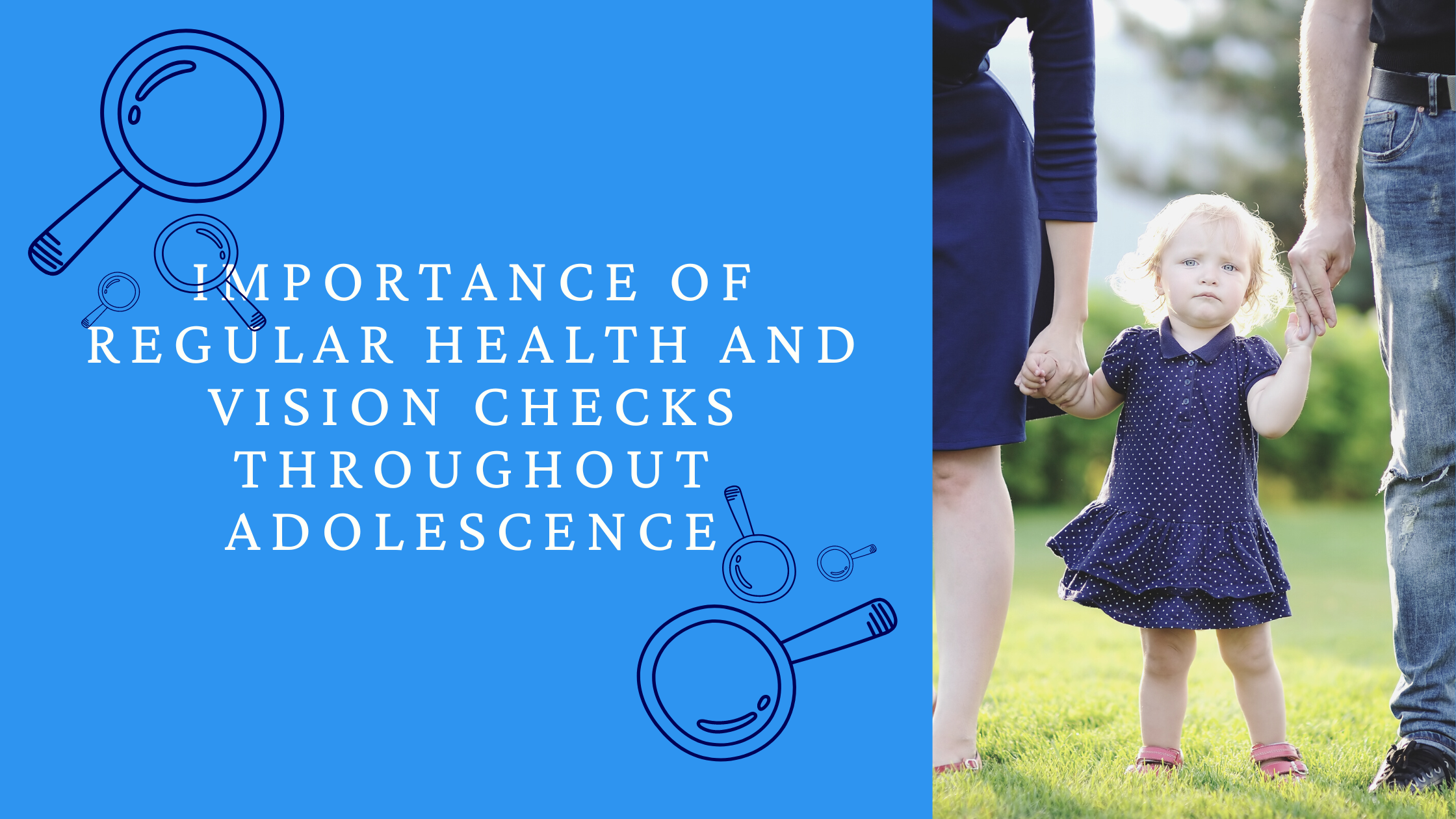 We’ve all heard the phrase, “Your child will grow up in the blink of an eye,” and if you’re a parent, you know how true this is. The more our children grow, the more they experience changes in their bodies. This is especially true throughout adolescence, so your child must have routine health and vision checks. These checkups test for health risks, mitigating the potential for issues later in your child’s life.
We’ve all heard the phrase, “Your child will grow up in the blink of an eye,” and if you’re a parent, you know how true this is. The more our children grow, the more they experience changes in their bodies. This is especially true throughout adolescence, so your child must have routine health and vision checks. These checkups test for health risks, mitigating the potential for issues later in your child’s life.
What are Health Checks?
Health checks, also called health screening tests, are tests conducted to determine if there are any underlying issues or problems a child may be experiencing. Health screening tests’ biggest goal is identifying the issues before a child shows symptoms. An example could be testing a baby’s blood to identify metabolic disorders like sickle cell disease or cystic fibrosis. For parents, by maintaining a routine of attending regular checkups, their children will be able to receive the care they need on time, encouraging a more positive growth outlook.
These routine vision checks are conducted to keep your child and family in the healthiest shape possible. Though health checks vary by age, there are general tests that you can expect before you and your child arrive. Generally, healthcare providers are screening for issues related to:
- Growth
- Vision
- Hearing
- Blood pressure
- Spinal growth
During these checkups, doctors ask vital questions regarding your child’s day-to-day life. Your doctor can better gauge your child’s development if you answer these questions honestly. They can ask questions about your kid’s diet and if they get enough healthy food. They could also ask questions about the family’s medical history and if there are any unusual health patterns. Other common inquiries can cover alcohol and tobacco use around the home, computer and screen time, and even health issues you’re experiencing as a parent (anxiety, depression, etc.). Doctors don’t ask these questions to scare or insult you but rather to paint the “big picture” for their patient’s health.
Ages for Health Checks
Healthcare professionals recommend bringing your child in for a routine health check at different ages. Each age group requires additional tests as symptoms can present in various ways as they develop.
Infants have the most common recurring healthcare checks due to their rapid growth. This time is essential because detection here can eliminate problems later. As prescribed by the American Academy of Pediatrics, the recommended checkup dates are:
- Newborn
- One month
- Two months
- Four months
- Six months
- Nine months
- One year
The next age group pertains to primarily the “toddler” stage. These checkup dates are:
- Fifteen months
- Eighteen months
- Two and ½ years
- Three years
After their 3rd year checkup, wellness tests are only needed annually. Of course, these checkups are separate from sickness checks.
What are Vision Checks?
Your child’s eyes help them interact and grow accustomed to their world. Specialists can detect vision problems and eye diseases through regular eye exams early. Such conditions can include:
- Astigmatism
A refractive error that makes vision blurry at any distance - Amblyopia
Also called “lazy eye,” reduced vision in one eye due to improper development - Myopia
Also called “nearsightedness,” where far objects appear blurry - Strabismus
Misaligned or crossed eyes, where one may look ahead while the other turns in a different direction
Many of these diseases, if caught early, can be treatable. During an eye exam, the doctor would put a child through a series of tests like the chart test, eye movement test (following an object with your eyes), and pupil test (responding to various lights). This is followed by the doctor using other vision instruments to take a closer look at your child’s lens, cornea, and eyelid.
After their initial eye tests, results generally go one of three ways. First, your child has no current issues and will not need follow-up until their next appointment. The second would be a preventative measure determined following diagnosis, like a prescription lens. The third would be a referral, so if the doctor did find something more pressing, they would refer you to an optometrist or ophthalmologist.
Ages for Vision Checks
A preliminary vision check is done while the patient is still a newborn. After this check, bringing your child to a vision specialist as early as six months is recommended. The doctor will perform yearly checkups to track correction progress for those given a diagnosis or prescription. Otherwise, patients who do not need correction will only need checkups every two years. If a problem occurs in the meantime, specialists recommend taking your child in as soon as possible.
Nowadays, general vision checks can even be given at home as a product of revolutionary technologies. One example of this development would be Kids Vision Check, an app that allows you to use AI technologies to identify potential issues in your child. This app offers an at-home solution to those unable to make yearly checkups or undergo the financial aspect of vision checks.
Your child’s growth depends on whether or not they are achieving their health and vision milestones. By bringing them in for health and vision checks, you are taking preventative measures toward bettering their growth outlook. Start today by scheduling your next appointment or even downloading the KidsVisionCheck app and begin at home!
